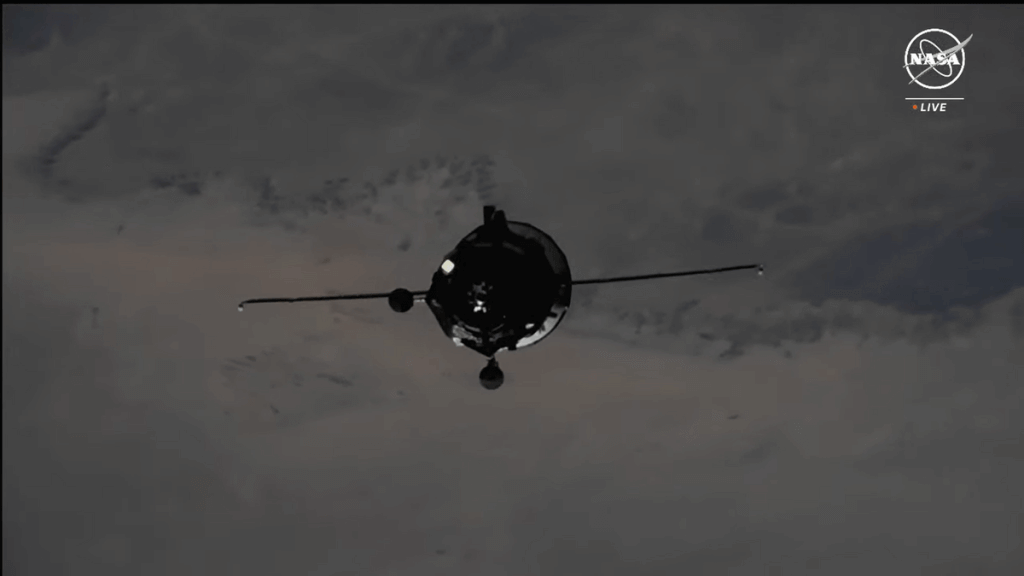
Cosmonauts dock Russian Progress cargo ship to ISS on remote control after autopilot glitch (Image Credit: Space.com)
Russian cosmonauts on the International Space Station (ISS) took manual control of an incoming cargo ship carrying tons of supplies after its automated rendezvous system suffered a glitch.
The unpiloted cargo ship, called Progress 86, docked to the station’s Russian-built Poisk module under remote control by Roscosmos cosmonauts Oleg Kononenko and Nikolai Chub, who tracked its approach from inside the ISS. Kononenko took control of the cargo ship remotely using a system called TORU, while the Progress 86 craft was flying around the station at a range of about 150 meters, apparently due to an issue with the cargo ship’s own Kurs automated rendezvous system.

“During the flyaround, the Progress vehicle started drifting away from the expected attitude and was not aligned with the docking target,” NASA spokesperson Anna Schneider said during live commentary. “The crew aboard the International Space Station has taken over manual control and recovered the expected attitude.”
Kononenko docked the Progress 86 spacecraft with the ISS at 6:18 a.m. EDT (1118 GMT), ending a two-day spaceflight that began Friday (Dec. 1) with a successful launch atop a Russian Soyuz rocket from Baikonur Cosmodrome in Kazakhstan. The cargo ship completed 37 orbits of Earth before docking.
“Contact confirmed, capture confirmed,” Kononenko radioed to Roscosmos mission control near Moscow. The Progress 86 and ISS were sailing 260 miles over the western Pacific Ocean.

Progress 86 is carrying 5,600 pounds (2,540 kilograms) of supplies for the seven crewmembers currently living and working on the ISS. That haul includes food, equipment, supplies and science experiment gear tp be used by long-duration crews during their six-month stays on the station.
Russia’s Progress spacecraft are one of several different vehicles used to periodically resupply the ISS. They are disposable and are designed to burn up in Earth’s atmosphere at the end of their months-long missions. SpaceX’s Dragon cargo ships and Northrop Grumman’s Cygnus spacecraft also resupply the station.





